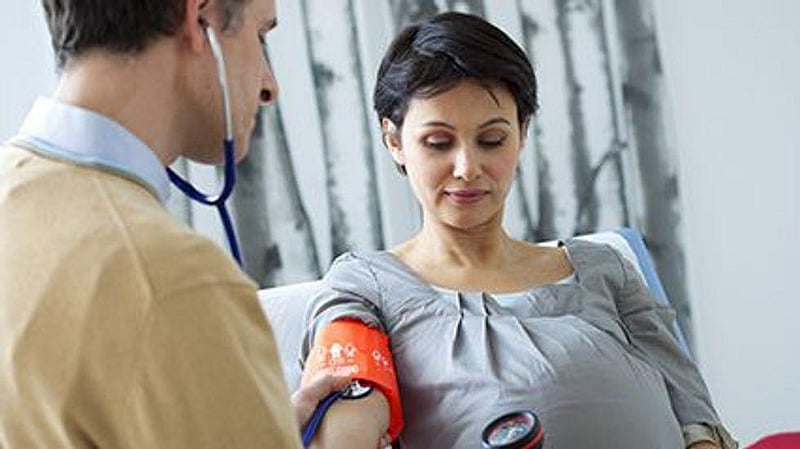Get Healthy!

- Posted October 11, 2021
Symptomatic COVID Could Bring on Emergency Delivery in Pregnant Women
Pregnant women suffering from COVID-19 with symptoms are more likely to experience complications that call for an emergency delivery, a new study suggests.
On top of facing a slightly higher risk for needing an unexpected cesarean section, women with symptomatic COVID-19 were more likely to need oxygen support and their infants were more likely to need care in a neonatal intensive care unit than women with asymptomatic COVID-19, the researchers report.
"This study, similarly to other available data, provides evidence regarding the serious health consequences COVID-19, and especially symptomatic COVID-19 infection, has on the pregnant patient and her newborn child," said Dr. Eran Bornstein, vice chairman of obstetrics at Lenox Hill Hospital in New York City.
"Given the substantial decreased risk of contracting COVID-19 infection or having symptomatic or severe disease after vaccination, patients who are pregnant or plan to be pregnant should be encouraged to complete their COVID-19 vaccinations," said Bornstein, who was not part of the study.
Bornstein's advice echoes that of the U.S. Centers for Disease Control and Prevention, which urges all pregnant women to get vaccinated against COVID-19 to protect both themselves and their newborn.
For the study, a team led by Dr. Rovnat Babazade, an assistant professor of anesthesiology at the University of Texas Medical Branch in Galveston, looked at 101 pregnant women with COVID-19 who delivered between March 2020 and September 2020.
Among these women, 31 had symptoms of COVID-19. Of these, 42% had fever, 39% had a cough, 26% had shortness of breath, 16% had muscle pain, 16% had chills and 10% had chest pain.
The researchers found that 58% of the symptomatic women delivered in emergency circumstances, compared with 47% of women who had COVID-19 but no symptoms.
Symptomatic mothers were more likely to have complications, including breech birth, decreased fetal movement, too little amniotic fluid, and slowing or stopping of labor.
Also, their babies were more likely to need oxygen support (31% vs. 29%) and be admitted to the neonatal intensive care unit (44% vs. 36%). One baby whose mother was symptomatic tested positive for COVID-19 after delivery, possibly infected from the mother, researchers said.
The rates of C-section delivery were higher among symptomatic women (65%) than among asymptomatic women (62%). These rates, however, were significantly higher than among the general population (32%), the researchers noted.
The findings were presented on Saturday at the virtual annual meeting of the American Society of Anesthesiologists. Findings presented at medical meetings are considered preliminary until published in a peer-reviewed journal.
"We know that the vaccine is safe during pregnancy, we're getting a ton of accumulating data on this," said infectious disease expert Dr. Marc Siegel, a clinical professor of medicine at NYU Langone Medical Center in New York City.
"We know that COVID is unsafe during pregnancy and that when you have COVID and you're pregnant, your chances of miscarriage go way up, your chances of being in the ICU go way up, and your chances of dying go way up," said Siegel, who had no role in the study.
COVID leads to compromised labor and delivery. "When you deliver you want to be in the best possible health, not battling a virus, not weakened, not with a fever, not with fatigue and not gasping for air," Siegel said.
He said that when the vaccine first became available, the question about its effect on pregnancy and the fetus were legitimate concerns.
"Flash forward to October. Well, we've had a lot of data that the vaccines are safe during pregnancy, and we know the vaccine is safe, period," Siegel said. "So if you're planning a child, get vaccinated now, and if you're in your first trimester, get vaccinated."
More information
For more on COVID-19 and pregnancy, see the U.S. Centers for Disease Control and Prevention.
SOURCES: Eran Bornstein, MD, vice chairman, obstetrics, Lenox Hill Hospital, New York City; Marc Siegel, MD, clinical professor, medicine, NYU Langone Medical Center, New York City; American Society of Anesthesiologists annual meeting, presentation, Oct. 9, 2021







